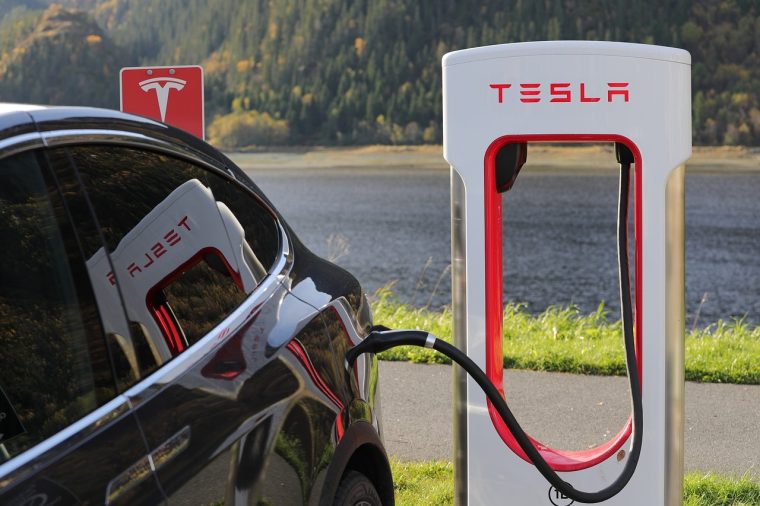When it comes to electric cars, driving range is often the top concern for potential buyers. A recent Reuters report revealed that Tesla might not be delivering the full mileage they’re promising, however. Allegations have surfaced stating that Tesla employees, directed by CEO Elon Musk, have been inflating the range estimates on its electric vehicles.
According to the report, the exaggerated potential driving distance was an issue that Tesla created a decade ago, when Tesla decided to begin manipulating their range-estimating software for marketing purposes. However, as the battery charge fell below 50%, the algorithm presented more realistic projections to prevent drivers from getting stranded.
Not Quite the Long Haul: Tesla’s Range Misrepresentations
With soaring Tesla sales in recent years, this issue has persisted, according to the report–with the number of complaints from Tesla owners also increasing and many people reporting significantly lower driving ranges than the company’s claims–especially in colder weather.
Alexandre Ponsin, a 2021 Model 3 owner, told Reuters, “We’re looking at the range, and you literally see the number decrease in front of your eyes.”
Such concerns led Ponsin and many others to book service appointments, only to be confronted with unexpected cancellations.
Why do the real world range tests for Tesla all come in lower than EPA? pic.twitter.com/sjB4SSSptY
— Stu (Not Paid by Sen. Warren) (@YolkCapitol) July 27, 2023
To mitigate these complaints and control service costs, Tesla established a dedicated “Diversion Team” last summer the report alleges. The team’s sole purpose was to manage and often cancel appointments related to range issues, sources told Reuters. Employees of this team were trained to explain to owners that the driving range estimates, even if EPA-approved, were mere predictions. Not only that, but inside their Nevada workspace, they celebrated each cancellation by striking a metal xylophone while muted on calls, with some even dancing on desks.
According to insiders, each canceled appointment saved Tesla roughly $1,000, while also reducing the strain on service centers, some of which faced extensive waitlists.
The issue at the core of this controversy isn’t that Tesla cars needed repair. Rather, the company’s inflated numbers lead customers into thinking their car is broken. According to the undisclosed source and corroborated by three automotive experts interviewed by Reuters, Tesla’s battery-driven cars regularly fail to meet their advertised range estimates and the projections provided by their own equipment.
Despite the car’s readout showing an empty battery, a “safety buffer” was designed to allow an additional 15 miles (24 km) of range. Whether this algorithm is still in use is unclear. However, the company continues to receive criticism from automotive testers and regulators for overstating the driving distance its cars can cover before the battery runs out.
$2.1 Million Battery Drain: Korean Regulators Charge Tesla
Interestingly, this isn’t the first instance of Tesla coming under scrutiny for its range projections. As mentioned in the report, earlier this year, South Korean regulators fined Tesla $2.1 million for falsely advertising driving ranges on its local website from August 2019 through December 2022. Tesla also failed to inform owners that cold weather could reduce the range of their cars.
Despite such international actions, in the U.S., Tesla managed to dodge fines, though the EPA did demand a 3% reduction in their advertised range estimates since the 2020 model year.
The issue with such estimates lies in their variability. While the EPA oversees these numbers, it allows for two methods to determine them: a standard formula or a manufacturer’s own tests. Tesla, aiming for more appealing figures, always opted for the latter.
https://twitter.com/Factschaser/status/1684915096978423808
The directive to showcase inflated range estimates came directly from Elon Musk, allegedly.
“Elon wanted to show good range numbers when fully charged,” the source said. “When you buy a car off the lot seeing 350-mile, 400-mile range, it makes you feel good.”
Analyses conducted by Recurrent, a Seattle-based EV analytics company, in 2022 and 2023 showed that the Tesla battery range estimates did not account for outside temperatures, which significantly impacts driving range. Scott Case, Recurrent’s chief executive, told Reuters that many other factors affecting driving distance were also overlooked by Tesla’s range meters.
In conclusion, while Tesla remains the leader in electric vehicle technology, these recent revelations regarding their Tesla battery range numbers put a dent in their reputation. As the market for electric cars becomes increasingly competitive, the importance of transparency and honesty cannot be overstated.
Related:
- Tesla to Continue to Dominate US EV Market Through 2026 Though BYD Already Dominates in the Rest of the World
- Oops… X Is Already Trademarked By Mark Zuckerberg – Can Elon Musk’s X Rebrand Get Any Worse?
- Elon Musk Says His AI Startup x.AI Will Be A Completely Unbiased Champion of Transparency – Is This a Good Idea?
Wall Street Memes (WSM) - Newest Meme Coin
- Community of 1 Million Followers
- Experienced NFT Project Founders
- Listed On OKX
- Staking Rewards
